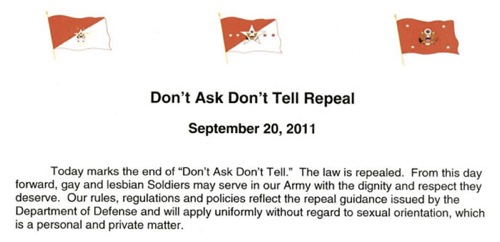Since I’ve commented a time or two (on Facebook, unfortunately, I’ve really got to start remembering that I have a blog more often…the posts are here and here) on my problems with Penny Arcade (primarily including, but not limited to, the “dickwolves” incident), it’s only fair to recognize that Mike has posted a clarification expanding on his comments at this year’s PAX.
Good things: This appears to me to be the most honest and (hopefully) heartfelt recognition of the damage the comic and the ensuing brouhaha caused. That strikes me as an encouraging step, and hopefully some sign that Mike is actually learning from all of this.
Not-so-good thing number 1: He still seems to be pinpointing removing the dickwolves shirt from the store as the action that “opened the wound back up.” This strikes me as problematic, because, as others have pointed out, removing the shirts was actually one of the few good decisions (possibly the only one) PA made during all of that. The wound was already open; removing the shirt was a band-aid. That’s why people have been so upset at his most recent comment.
Not-so-good thing number 2: Though he says he understands why the original comic upset people, and that he regrets the follow-up comic, that seems to be as far as he’ll go. Now, I’ll admit that I can (and do) see what PA was aiming for with the original comic (in his words, “point[ing] out the absurd morality of the average MMO where you are actually forced to help some people and ignore others in the same situation”).
However, the joke itself does not need to use rape as the setup for the punchline. The joke boils down to:
Prisoner: Take me with you!
Hero: I only need to rescue five. You’re number six. Get lost.
Prisoner: But horrible things happen to me here!
Hero: I said, you’re number six. Cope.
I’m relatively sure that the guys at PA could find all sorts of horrible things that would be horrid and funny that aren’t rape.
It seems to me that the best thing to do now (and what would have been the best thing back then) would be to come up with some alternate “horrible thing”, substitute the text, and re-upload the comic, with a statement along the lines of, “We have realized that we went too far with this joke, apologize for causing offense, and have adjusted it accordingly”. It certainly wouldn’t erase the original comic from existence (it’s been copied and referenced far too many times for that to happen), but it would at least recognize the problem and that people were hurt, it would go a long way to backing up their insistence that they’re just good guys (or at least guys who are trying to do good) with a twisted sense of humor, and it would allow the joke itself to remain part of the PA archives. (If they were to go this route, I would suggest removing their followup strip, however. I’m not sure that one can be salvaged.)
I’m still not going to start reading PA again (it was never one of my “must-reads” anyway), and as I’ve stated before, I’m not enough of a gamer to have much interest in going to PAX, so on that level, I suppose my opinions/advice don’t really mean all that much. However, I do hold out hope that Mike may actually be learning from all of this, and that things will improve in the future.
